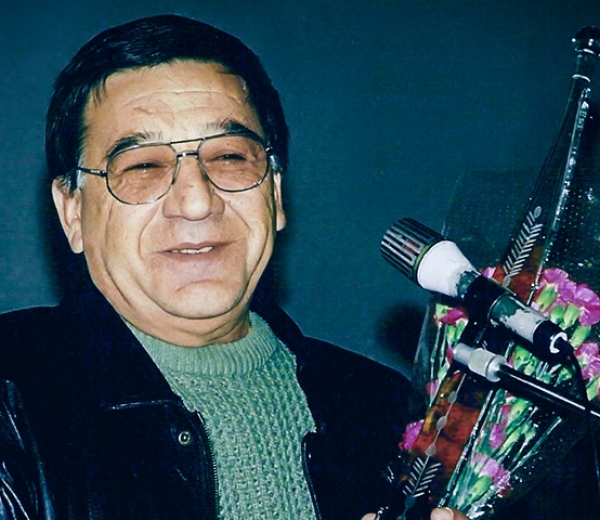Albert Mkrtchyan
Submitted by global publisher on Thu, 12/03/2015 - 14:21
English
Intro:
The story of the decorated Armenian filmmaker Albert Mkrtchyan and his brother, renowned Soviet actor Frunzik Mkrtchyan, is well documented. However, it seems that some pages of that story have been lost forever.
Weight:
-1 900
Story elements:
Text:
The story of the decorated Armenian filmmaker Albert Mkrtchyan and his brother, renowned Soviet actor Frunzik Mkrtchyan, is well documented. However, it seems that some pages of that story have been lost forever.
Text:
Albert Mkrtchyan wrote and directed many famous Armenian films, including “The Song of the Old Days” (1982) and the “Tango of Our Childhood” (1985). The setting of most of Mkrtchyan’s films is his native town of Gyumri. “Merry Bus,” a picture released in 2000, portrays life in the town following the devastating earthquake of 1988, while “Dawn on a Sad Street,” released eight years later, is set in Gyumri of the 1990s, at the height of the Karabakh conflict. The director also heads the Mher Mkrtchyan Theater in Yerevan, founded by Frunzik in 1986.
No less accomplished than his brother, Soviet movie star Frunzik (Mher) Mkrtchyan was often referred to as the “Armenian Charlie Chaplin.” Each of the comic and tragicomic characters he created for both cinema and theater was original, and with every new role the actor came to be associated with his latest on screen character.
His popularity was overwhelming. Frunzik often said that he never had to pay for anything and nobody ever asked for his documents, so in real life he had little use for paperwork or cash. Frunzik Mkrtchyan appeared in almost 50 films, many of which became part of the Soviet “golden collection,” including “Mimino,” “Dormitory for Singles and Kidnapping,” “Caucasian Style.” Even today, there is a lot of interest in the life and family history of this famous actor.
Image:
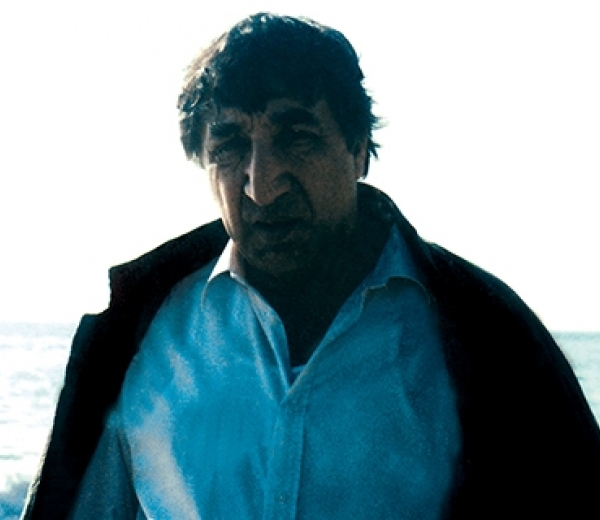
Text:
|
Frunzik Mkrtchyan |
Life in the “City of Orphans”
In 1915 Musheg, the father of the Mkrtchyan brothers, was five years old; their mother Sanam was only four. They grew up in the Eastern part of the Ottoman Empire, in a region that is now part of Turkey, and fled with a group of refugees heading to Alexandropol (now Gyumri). Along the way, they were taken from that procession and sent to an orphanage. “Father was from Mush and very proud of it. Mother, a native of Van, was a delicate and reserved woman,” Albert Mkrtchyan recalls.
This all that is known about the family’s origins. Musheg and Sanam never talked about their lives in Western Armenia, their early childhood, their parents and ancestral homes. Everything they had to endure in the years of the Genocide was sealed away in their memories. In trying to protect their children’s feelings, Musheg and Sanam never told them about life in the orphanage where they both grew up. “Such a tragedy is simply impossible to imagine: in just one moment they lost all their friends and relatives,” says Albert.
That huge orphanage in Alexandropol (which became Leninakan in the Soviet times) was established by the American Committee for Relief in the Near East in 1919. It took over the site of three forts – “Cossack Station,” “Northern” and “The Range” – established by the Russian Empire. The orphanage was set up in 170 buildings and barracks. Over the years, it came to house up to 30,000 children. There weren’t enough beds for everyone, so many kids slept on bags stuffed with straw.
The orphanage was often called the “City of Orphans,” and the older kids took care of the young ones. The children were groomed for life outside the institution: little residents of the “city” were taught crafts, gardening, farming and housekeeping.
A silent dialogue
When he got older, Musheg got a job as a timekeeper at the local textile factory, while Sanam became a dish washer at the local cafeteria. That was where they met. “Our parents kept silent about their past. They had nothing to tell each other because their stories were identical. They didn’t want to upset us. We learned about the Genocide from other refugees in town,” says Albert.
Image:
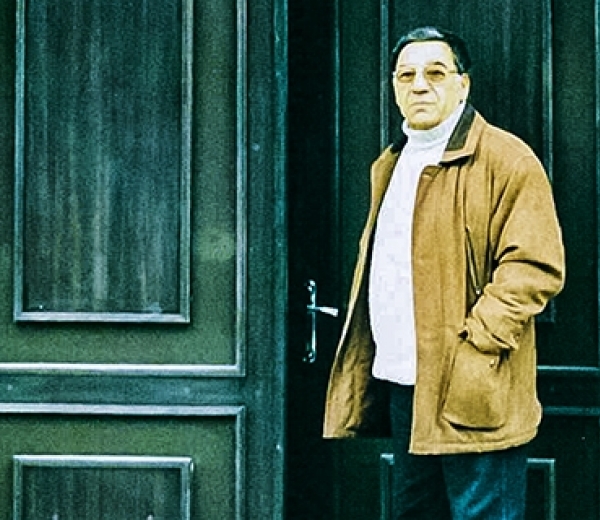
Text:
|
Albert Mkrtchyan |
He remembers his parents sitting next to each other silently for hours, engrossed in their own memories.
“If somebody looked into their eyes at that moment, they would be terrified by the sadness that filled them,” Albert says.
Almost nothing was known about other members of the family. “We knew we had relatives somewhere on the Ararat plain, but we never met them,” the film director recalls.
But life was difficult and there wasn’t much time for reflection. After World War II, as conditions worsened everyone did what they could to survive. At the Leninakan textile factory the workers sometimes stole the unbleached calico by taping it around their feet. One day Musheg Mkrtchyan was caught doing just that. He was arrested for stealing and deported to Nizhny Tagil, where he spent ten years in labor camps. Sanam had to raise four kids — Frunzik, Albert, Klara and Ruzanna — all on her own.
Separation from his father was especially hard on Albert. “When I was 13, I ran away from home: I got into a freight car and it took me to Moscow. There I got onto a different train and that was how I ended up in Nizhny Tagil. I would watch the prisoners felling trees from afar,” remembers Albert.
Image:
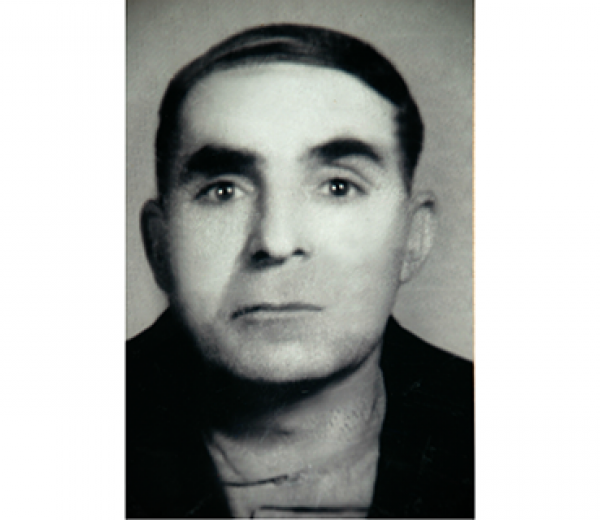
Text:
|
Musheg Mkrtchyan |
After spending three days in Nizhny Tagil and seeing his father, the teenager took the same route back to Gyumri. “Father saw me and he was startled. He didn’t want to let me go, but I went home,” says the film director.
Frunzik, on the other hand, had a special relationship with his mother. He used to say: “Everything that is good in me is from my mother. All of my flaws are also from her.” He admitted that he always wanted to share the joy of fame with his parents, but they both passed away before his greatest successes.
Image:
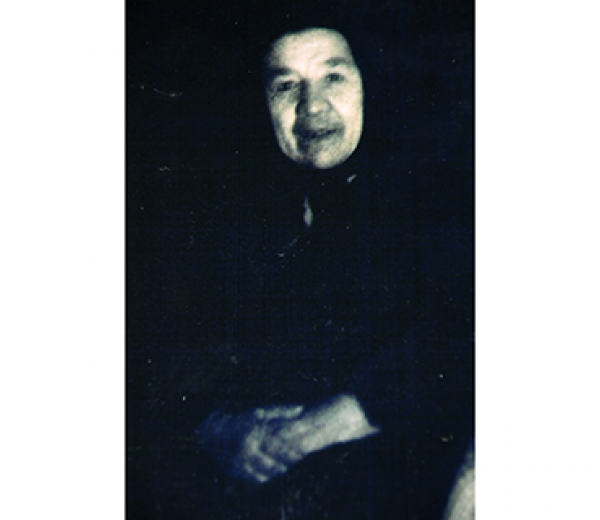
Text:
|
Sanam Mrktchyan |
Albert Mkrtchyan turned the memories of his difficult but lively childhood into an autobiographical film, the “Tango of Our Childhood.” In the movie, Frunzik played the character of Ruben. The character was based on Musheg, who actually had a complicated relationship with his eldest son. Nonetheless Frunzik dreamt of bringing his father, “a simple working man who had a gift for seeing beauty,” to the big screen.
Musheg didn’t want Frunzik to become an actor, urging him to become an artist instead. They argued, but Frunzik managed to convince his father with a starring performance in a play at the textile factory’s theater club. Unfortunately, the reconciliation took place just before their father’s arrest.
“How can anyone explain why my father Musheg, who never went to a museum in his life, who hadn’t even seen the replicas of the great masters, dreamed of his son becoming an artist?” Frunzik wondered later in life.
The witty remarks of the movie’s principal heroine Siranush, played by Galya Novents, were mostly derived from the words of Sanam Mkrtchyan herself. The actress, whose portrayal earned her a special mention at the 42nd Venice International Film Festival, met Sanam and remembered her as “a very genuine, simple and sincere woman.”
“Van of my Sanam, Mush of my Musheg”
The Armenian Genocide was barely mentioned in the Soviet Union until the 1960s, when it began to resurface in the works of Soviet writers and moviemakers. The Armenian film industry began to make the first movies about Genocide survivors. Frunzik Mkrtchyan appeared in some of them. In “Triangle” (1967), directed by Henrik Malyan, his character tells the story of his survival at sea. The role of the blacksmith Ust earned Frunzik Mkrtchyan the State Prize of the Armenian Soviet Socialist Republic.
Image:
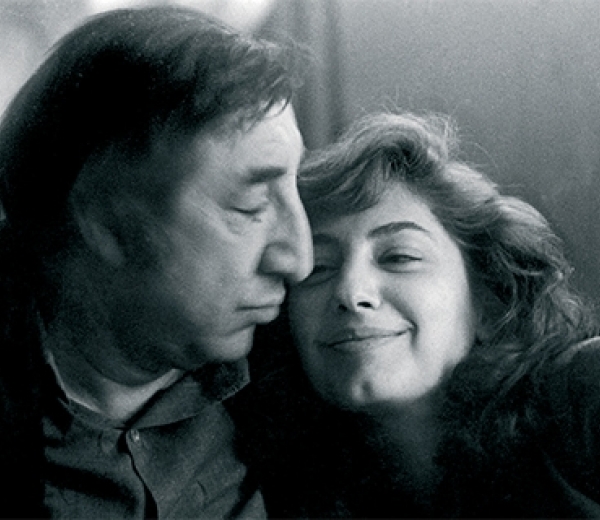
Text:
|
Frunzik Mkrtchyan with his wife Tamara Oganesyan |
In the 1970s, as well as starring in “Mimino” in Moscow, which would earn him national popularity, Frunzik appeared in another of Malyan’s movies. This time it was the “Nahapet,” which was also a milestone of Armenian cinematography. It was the first Soviet feature film that openly talked about the Genocide.
While the main character of the film, a Genocide survivor Nahapet and his quiet wife keep silent and hide their feelings, his brother-in-law Apro (played by Frunzik Mkrtchyan) is very emotional about the past. He is the one who tells the villagers about Nahapet’s tragedy. Frunzik’s character becomes the symbol of hope, delivering one of the key phrases: “Nahapet’s line should not be broken.”
Frunzik dreamt of seeing Mush and Van, the homeland of his ancestors. He knew the history and the folklore of the region well. “I envy your eyes,” the actor told the poet Levon Miridjanyan, who was able to visit Western Armenia and find his parents’ ancestral home. That longing for his almost vanished roots haunted Frunzik till the end of his days. “I’ve been around the world, but I never got to see the Van of my Sanam nor the Mush of my Musheg,” he would say wistfully.
In early 2015 Albert Mkrtchyan began filming his new work titled “Puppy,” based on an eponymous novel by Sos Sargsyan, which talks of three childhood friends separated by different fates. “The main idea of the film is that Armenians should always be together,” says Albert. “Nothing should get in the way of their reunification.”
The story is verified by the 100 LIVES Research Team.
Subtitle:
Filmmaker and brother of actor Frunzik Mkrtchyan: “Our parents kept silent about their past”
Story number:
198
Author:
Gayane Mirzoyan
Header image:
